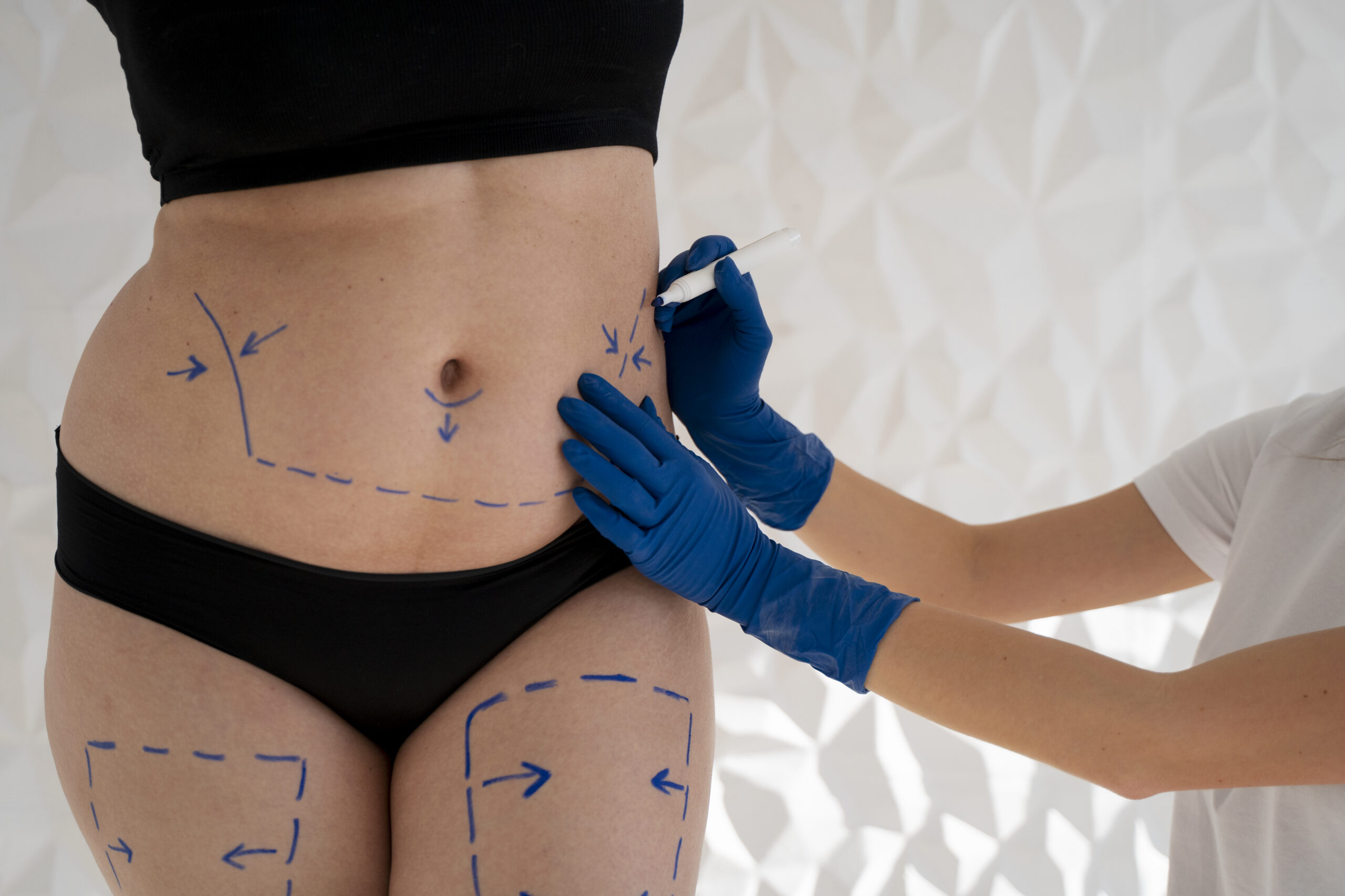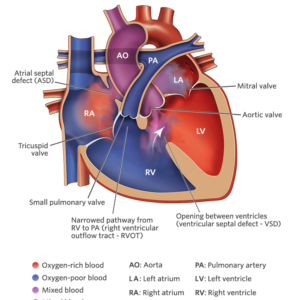Description
Familiarity with treatment
A mini tummy tuck is a surgical procedure that targets the lower abdomen to address excess skin and fat in that area. Here is a general overview of the procedure:
Anesthesia: The procedure begins with the administration of anesthesia to ensure your comfort during the surgery. Your surgeon will recommend the best type of anesthesia for you, which may include intravenous sedation or general anesthesia.
Incision: A mini tummy tuck involves a smaller incision compared to a full tummy tuck. The incision is typically made along the bikini line, similar to the incision made during a cesarean section. The length of the incision will depend on the amount of excess skin to be removed.
Muscle Tightening: After making the incision, the surgeon will access the underlying abdominal muscles. If necessary, they will tighten and repair the weakened or separated abdominal muscles to create a firmer abdominal wall.
Excess Skin and Fat Removal: The surgeon will remove excess skin and fat from the lower abdomen through the incision. This helps to flatten and smooth the abdominal area.
Closure: Once the excess skin and fat have been removed, the surgeon will carefully close the incision using sutures. They may also use surgical tape or adhesive to support the incision.
Recovery: After the procedure, you will be monitored in a recovery area. You may need to wear a compression garment to support the healing tissues and reduce swelling. Your surgeon will provide specific instructions on postoperative care, including wound care, medication usage, and activity restrictions.
Who is it suitable for?
A mini tummy tuck is suitable for individuals who have specific concerns limited to the lower abdomen, such as excess skin and fat below the belly button. Here are some factors that may make someone a good candidate for a mini tummy tuck:
Localized Concerns: The ideal candidate for a mini tummy tuck has excess skin and fat primarily in the lower abdominal area, below the belly button. This procedure is specifically designed to address these localized concerns.
Good Overall Health: Candidates should be in good overall health, without any underlying medical conditions that could increase the risks associated with surgery and anesthesia.
Stable Weight: It is generally recommended that candidates have a stable weight before undergoing a mini tummy tuck. Significant weight fluctuations after the procedure can affect the results.
Realistic Expectations: Candidates should have realistic expectations about the outcomes of the procedure. While a mini tummy tuck can provide noticeable improvements, it is important to understand that it is a targeted procedure and may not address concerns in the upper abdomen or provide the same level of correction as a full tummy tuck.
Non-Smokers: Smoking can impair the healing process and increase the risk of complications. Candidates are typically advised to quit smoking before the procedure and during the recovery period.
Who is it not suitable for?
While a mini tummy tuck can be a suitable option for many individuals, there are certain cases where it may not be recommended. Here are some factors that may make someone not suitable for a mini tummy tuck:
Significant Abdominal Concerns: A mini tummy tuck is designed to address localized concerns limited to the lower abdomen below the belly button. If you have significant excess skin and fat or muscle laxity throughout the entire abdominal area, including the upper abdomen, a full tummy tuck may be a more appropriate option.
Pregnancy or Future Pregnancy: If you are planning to have children in the future or are currently pregnant, it is generally advisable to postpone a mini tummy tuck. Pregnancy can stretch the abdominal muscles and skin, potentially affecting the results of the procedure.
Unstable Weight: Candidates for a mini tummy tuck should have a stable weight. If you are actively trying to lose weight or have a fluctuating weight, it may be better to reach a stable weight before considering the procedure. Significant weight fluctuations after the surgery can affect the results.
Poor General Health: Individuals with certain medical conditions or poor overall health may not be suitable candidates for a mini tummy tuck. It is important to have a thorough evaluation by a board-certified plastic surgeon who can assess your medical history and determine if you are a good candidate for the procedure.
Smokers: Smoking can impair the healing process and increase the risk of complications. Candidates who smoke are generally advised to quit smoking before the procedure and during the recovery period. If you are unable to quit smoking, a mini tummy tuck may not be recommended.
Advantages
A mini tummy tuck offers several advantages for individuals who are suitable candidates for the procedure. Here are some potential benefits:
Targeted Treatment: A mini tummy tuck specifically targets the lower abdomen, below the belly button. It is effective for individuals who have excess skin and fat in this area, often referred to as a “pooch,” that is difficult to eliminate through diet and exercise alone 1.
Smaller Incision and Scar: Compared to a full tummy tuck, a mini tummy tuck involves a smaller incision along the bikini line. This results in a shorter scar, which can be appealing for individuals concerned about the visibility of scars 2.
Less Invasive: A mini tummy tuck is generally considered a less invasive procedure compared to a full tummy tuck. It typically involves less extensive muscle repair and removal of skin and fat, resulting in a potentially shorter recovery period 3.
Quicker Recovery: Due to the less extensive nature of the procedure, the recovery time for a mini tummy tuck may be shorter compared to a full tummy tuck. However, it is important to note that individual recovery experiences can vary 4.
Improved Abdominal Contour: A mini tummy tuck can help flatten and smooth the lower abdominal area, resulting in a more toned and contoured appearance. It can address excess skin and fat, providing a more aesthetically pleasing abdominal contour.
Complications
Like any surgical procedure, a mini tummy tuck carries potential risks and complications. It is important to be aware of these before making a decision. Here are some potential complications associated with a mini tummy tuck:
Infection: There is a risk of developing an infection at the incision site. Your surgeon will provide instructions on how to minimize this risk and may prescribe antibiotics to reduce the likelihood of infection.
Bleeding: Excessive bleeding during or after the surgery is a potential complication. Your surgeon will take precautions to minimize bleeding during the procedure and will provide instructions on how to manage bleeding after the surgery.
Poor Wound Healing: Some individuals may experience delayed wound healing or wound separation. This can lead to scarring or the need for additional procedures to address the wound.
Changes in Sensation: Temporary or permanent changes in sensation, such as numbness or altered skin sensitivity, may occur in the abdominal area or around the incision site.
Unsatisfactory Cosmetic Results: While a mini tummy tuck aims to improve the appearance of the lower abdomen, there is a possibility of unsatisfactory cosmetic outcomes. This can include asymmetry, contour irregularities, or dissatisfaction with the overall aesthetic result.
Blood Clots: There is a risk of developing blood clots, particularly deep vein thrombosis (DVT), which can be a serious complication. Your surgeon will take measures to minimize this risk, such as encouraging early ambulation and prescribing blood thinners if necessary.
preoperative care
Preoperative care for a mini tummy tuck involves several important steps to ensure a safe and successful surgery. Here are some key aspects of preoperative care:
Consultation with a Board-Certified Plastic Surgeon: Schedule a consultation with a board-certified plastic surgeon who specializes in mini tummy tucks. During this consultation, you will discuss your goals, medical history, and expectations for the procedure. The surgeon will evaluate your suitability for the surgery and provide personalized recommendations.
Medical Evaluation: Your surgeon will conduct a thorough medical evaluation to assess your overall health and identify any preexisting conditions that may affect the surgery or anesthesia. This may include reviewing your medical history, performing a physical examination, and ordering any necessary preoperative tests, such as blood work or imaging studies.
Discussion of Expectations and Risks: Your surgeon will explain the potential benefits, risks, and limitations of a mini tummy tuck. They will discuss the expected outcomes, potential complications, and any specific risks that may be relevant to your case. It is important to have realistic expectations and a clear understanding of the procedure.
Preparation Instructions: Your surgeon will provide specific instructions to prepare for the surgery. These may include guidelines for fasting before the procedure, discontinuing certain medications or supplements that can increase the risk of bleeding, and avoiding smoking or alcohol consumption. It is important to follow these instructions closely to minimize the risk of complications.
Arrangements for Recovery: Plan for your postoperative recovery period. Arrange for someone to drive you home after the surgery and assist you during the initial days of recovery. Ensure that you have a comfortable and supportive environment at home to facilitate your healing process.
Discussion of Medications: Inform your surgeon about any medications you are currently taking, including prescription medications, over-the-counter drugs, and supplements. Your surgeon will provide specific instructions on which medications to continue or discontinue before the surgery.
Preoperative Lifestyle Changes: Your surgeon may recommend certain lifestyle changes before the surgery to optimize your health and recovery. This may include maintaining a healthy diet, staying hydrated, and engaging in regular exercise within your physical capabilities.
Postoperative care
Postoperative care is crucial for a successful recovery after a mini tummy tuck. Here are some key aspects of postoperative care:
Follow Surgeon’s Instructions: It is important to carefully follow the postoperative instructions provided by your surgeon. These instructions may include guidelines for wound care, medication management, and activity restrictions. Adhering to these instructions will help promote proper healing and minimize the risk of complications.
Wound Care: Proper wound care is essential to prevent infection and promote healing. Your surgeon will provide specific instructions on how to clean and care for your incision site. This may involve keeping the incision clean and dry, applying prescribed ointments or dressings, and avoiding activities that may strain the incision.
Pain Management: Pain and discomfort are common after a mini tummy tuck. Your surgeon will prescribe pain medications to help manage any postoperative pain. It is important to take the medications as directed and report any severe or persistent pain to your surgeon.
Compression Garment: Your surgeon may recommend wearing a compression garment after the surgery. This garment helps reduce swelling, provides support to the surgical area, and promotes proper healing. Follow your surgeon’s instructions regarding the duration and usage of the compression garment.
Activity Restrictions: It is important to avoid strenuous activities, heavy lifting, and exercise during the initial stages of recovery. Your surgeon will provide specific guidelines on when you can gradually resume normal activities and exercise. Gradually increasing your activity level as advised by your surgeon will help prevent complications and optimize your recovery.
Follow-up Appointments: Regular follow-up appointments with your surgeon are essential to monitor your progress and address any concerns or complications that may arise. Attend all scheduled appointments and communicate any changes or issues you may be experiencing.







Reviews
There are no reviews yet.